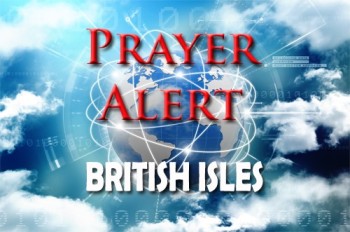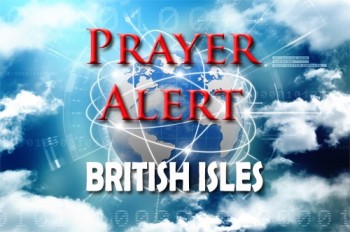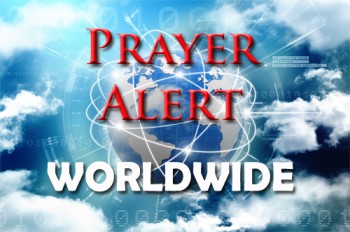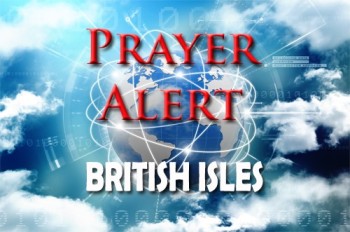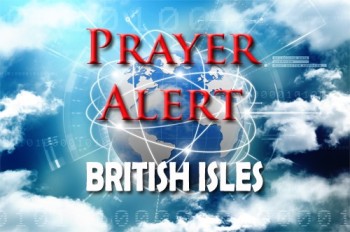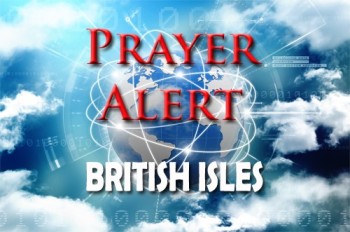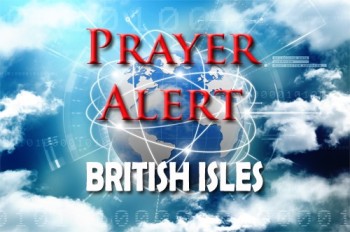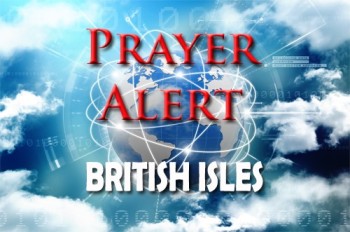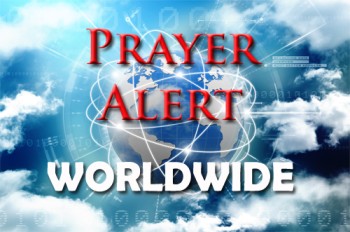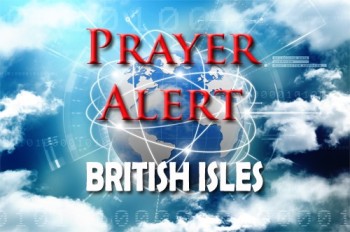Displaying items by tag: BBC
Trump says he has 'obligation' to sue BBC because 'it defrauded the public'
Donald Trump has intensified his criticism of the BBC, threatening a billion-dollar lawsuit over what he claims was a dishonest editing of a speech he delivered before the 6 January 2021 Capitol riot. The threat follows the resignation of BBC director-general Tim Davie, who stepped down amid the controversy. Trump told Fox News he felt an 'obligation' to sue, accusing the broadcaster of 'defrauding the public' and turning what he described as a calming speech into something radical. His legal team has demanded a full retraction of what they consider defamatory statements, warning that failure to comply will trigger legal action. Sir Ed Davey has urged Keir Starmer to ask Trump to drop the lawsuit. Starmer defended the BBC as a vital and independent institution, across the world, while acknowledging the need for accuracy and accountability. Culture secretary Lisa Nandy warned MPs against undermining the broadcaster, emphasising its national importance as charter review approaches. The situation has reignited debates around impartiality, political pressure, and the future governance of the BBC.
BBC chief ‘appalled’ by anti-IDF chants
BBC director-general Tim Davie has told Jewish staff he is 'appalled' by anti-IDF chants during punk band Bob Vylan’s Glastonbury set, acknowledging 'deep upset' among employees. The band led some of the crowd in chanting 'Death to the IDF’, remarks Davie condemned as 'deeply offensive'. Though he attended the festival, the BBC’s livestream of the performance remained online for hours before removal, sparking criticism from staff, the Chief Rabbi, and government ministers. Culture secretary Lisa Nandy demanded rapid reforms, criticising the broadcaster’s handling of the incident and its earlier decision to withdraw a Gaza documentary linked to a Hamas official’s son. Meanwhile, over 400 figures, including BBC staff and prominent artists, signed an open letter accusing the BBC of failing to report critically on Israel’s actions and UK arms sales. The controversy adds to growing internal and external scrutiny of the BBC’s leadership and editorial decisions. Davie insists that there is no place for antisemitism at the BBC.
COP28: UAE denies claims of deals on fossil fuels
President Sultan al-Jaber has denied allegations that the UAE plans to use the COP28 climate summit to negotiate oil and gas deals with other nations, as reported by the BBC on 27 November. Leaked briefing documents indicated the UAE's intention to discuss fossil fuel agreements with fifteen countries during the summit. The documents revealed proposed talking points for various countries, including China, Colombia, Germany, and Egypt, regarding fossil fuel collaboration. Mr Jaber, who is also the CEO of UAE's state oil company, Adnoc, and renewables business, Masdar, dismissed the allegations, calling them false and inaccurate. The controversy raises concerns about the intersection of climate goals and fossil fuel interests. The hope is that COP28 will help limit the long-term global temperature rise to 1.5C, which the UN's climate science body says is crucial to avoid the worst impacts of climate change. But that will require drastic cuts in greenhouse gas emissions - a 43% reduction by 2030 from 2019 levels.
BBC accused of 'airbrushing Jesus from language'
The BBC's decision to replace the traditional terms BC (Before Christ) and AD (Anno Domini) with BCE (Before Common Era) and CE (Common Era) in some of its programmes has sparked controversy. Gavin Ashenden, former chaplain to the Queen and now associate editor of the Catholic Herald, criticised the move as part of a broader attempt to 'airbrush Jesus out of the language.' He called on Christians to actively defend the traditional terms and use these changes as opportunities for evangelism, and dismissed the notion that Christians were being over-sensitive about the issue. The BBC, defending its decision, stated that both date systems are widely accepted, and the choice of terms is left to individual production and editorial teams. The debate highlights a cultural and religious tension over the representation of Christianity in public broadcasting.
British royals condemn Hamas attacks as terrorism
The British royal family has publicly condemned Hamas as terrorists and expressed their dismay at the attacks on Israel. King Charles and the Prince and Princess of Wales have all criticised the group's actions. The comments come as the BBC faces pressure to refer to Hamas as terrorists rather than militants. The controversy regarding this reluctance has sparked debate among political figures and former executives. The BBC has defended its stance, stating that using the term ‘terrorist’ could compromise journalistic impartiality. Critics argue that by not using the term, the BBC is taking sides, and claim that it fails to accurately report acts of terrorism and war crimes. Despite the debate, the royal family remains focused on supporting interfaith and inter-community dialogue and promoting peace and understanding in challenging times. The King has a history of engaging in peace efforts in the region, including visits to Israel and the West Bank.
Colombian migrant dies in detention centre
The family of a Colombian man who is believed to have killed himself at a Heathrow immigration removal centre say he begged for help and was willing to leave the UK. Frank Ospina died on 25 March, within a month of being detained, while he was waiting to be deported. His family say that he had no existing mental health problems. The BBC has been investigating conditions inside immigration centres, at a time when the Government is taking a harder line on migrants. Documents have shown mounting strain on detainees because of the delays in processing their cases, and also there was an incident in which a group of detainees tried to kill themselves three days after Mr Ospina's death. This news comes ahead of the publication of a report, due soon, into abusive behaviour by staff at the Brook House facility, a centre near Gatwick. A public inquiry was launched following a landmark undercover Panorama investigation in 2017: see
BBC’s damaged reputation
The Sun newspaper reported that a well-known BBC presenter has paid over £35,000 to a 17-year-old to fund his drug habit in exchange for explicit images of himself. A week later the BBC suspended Huw Edwards. But the BBC's investigation will need to tread carefully as the presenter has severe mental health issues. The BBC has a duty of care towards him as an employee, and that must be respected. He is in an internal corporate BBC process. On 12 July the Sun reported him breaking lockdown rules in 2021 to meet someone from a dating site. Without having seen the evidence people can't judge the outcome. Pray for an end to unhelpful media speculation. It could be a reprimand. It could be dismissal. It could need reputational rehabilitation. See
Growing public distrust in British media
Data compiled from 2018 to 2022 by Reuters showed the BBC experiencing a decline in public trust from 75% to just 55%. Other mainstream TV broadcasters and newspapers suffered a similar decline. The UK is in 26th position, ahead of only South Korea and Japan in terms of public faith in media. British people have among the lowest levels of trust in journalists, with only 37% of those surveyed saying that they trusted them, versus the global average of 47%. Only two out of every ten people feel that the news media is ‘independent from undue political or government influence most of the time’. This ranks the UK 16th among the 24 nations surveyed, on a par with Romania. Our much-vaunted media landscape is not the envy of the world as we are often led to believe. See also
Cambodia / India: honest media opposed
Cambodia’s prime minister Hun Sen has shut down the last few independent media outlets in the country, six months before a general election. He cancelled Voice Of Democracy‘s operating licence after they published an article which he claimed slandered his son. Amnesty International said this is slamming the door on what is left of independent media and a warning to other critical voices who still dare to ask questions about the government, the prime minister, and his family. Pray for Cambodians to have safe access to truthful news. Indian tax authorities searched BBC offices after it aired a story of prime minister Narendra Modi’s role in anti-Muslim violence when he was chief minister of the state. It was only broadcast in the UK. Modi is blocking Indians from sharing ‘the Modi question’ online, calling it hostile propaganda. A spokesman for him called the BBC ‘the most corrupt organisation in the world’.
'Toxic culture' of abuse at NHS hospital
An undercover reporter worked inside the Edenfield Centre caring for people held under the Mental Health Act who are at serious risk of harming themselves or others. With a hidden camera, he filmed staff swearing at patients, taunting and mocking them in vulnerable situations - when they were undressing - and joking about their self-harm. Patients were being unnecessarily restrained as well as being slapped or pinched by staff on some occasions. Some female staff acted in a sexualised way towards male patients. Ten patients were being held in small seclusion rooms, designed for short-term isolation to prevent immediate harm, for days, weeks or even months, with only brief breaks. Patient observations, a crucial safety measure, were being regularly missed, and records falsified. Seven members of staff were seen sleeping on shift. A consultant psychiatrist said the footage showed a ‘toxic culture’ among staff of ‘corruption, perversion, aggression, hostility, and lack of boundaries’, which were undermining patient recovery.
